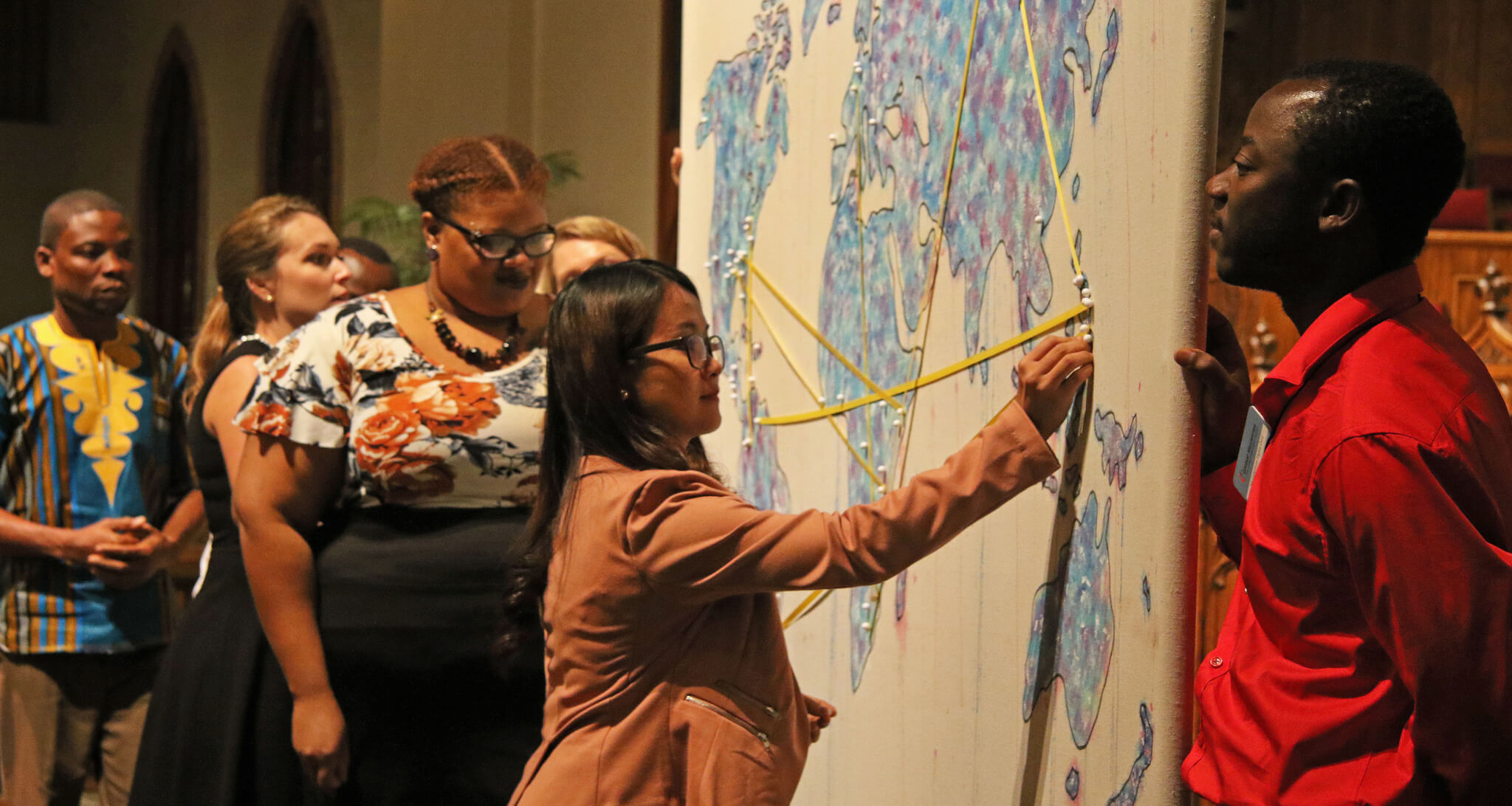
By Elliott Wright
August 12, 2020 | ATLANTA
United Methodist missionaries from around the world gathered virtually on the morning of August 11 (EDT) to hear a farewell message from and pay tribute to Thomas Kemper, who for a decade has led the General Board of Global Ministries and is leaving the post of general secretary at the end of the month.
The missionaries prepared a video of statements of appreciation and affection for Kemper in many languages. A virtual missionary choir sang a composed song based on the phrase “From Everywhere to Everywhere,” a description of United Methodist missionaries popularized by Kemper.
Some 200 active and retired missionaries or missionary families took part, with participants ranging in age from less than one year – a newborn child of missionary Bruna Farát da Silva Mahamane Kakalé in Brazil – to 99-year-old retired missionary, Dr. Lowell Gess, a physician who served in Sierra Leone.
Global Ministries has some 350 missionaries in international and U.S. domestic service at any given time, with variation depending on two-year classes of young adult Global Mission Fellows. Many missionaries and Global Mission Fellows were unable to join the virtual missionary town hall because of location, time and access.
The occasion was deeply moving, filled with warmth of association and sadness in parting. Many remarks in the Zoom comments section thanked Kemper for his open, compassionate leadership style and for making United Methodist missionaries being “from everywhere to everywhere” a reality.
Kemper, a German layman and missionary himself in Brazil early in his career, centered his farewell message on the theme of mission as friendship, using examples from the New Testament, general mission history and recent global ministry experience.
He illustrated three characteristics of mission as friendship set forth by Dr. Dana Robert, professor of World Christianity and History of Mission at Boston University School of Theology, in her new book, “Faithful Friendships: Embracing Diversity in Christian Community.” The three are:
- Incarnate living – the commitment to “abide,” to live, with the people the missionary serves; one notable example cited by Kemper was John Stewart, an African American layman who in the second decade of the 19th century befriended the Wyandotte people of Ohio and became the inspiration for founding the first Methodist missionary society in America. The native people thought of Stewart as “friend” and still do.
- Mutuality – to share with and receive from others in the community; to eat together, as symbol of moving together toward God’s banquet. Kemper described and showed a video of Christian ecumenical community around soup pots shared with street people in São Paulo, Brazil, when he was a missionary there; each person brought what he/she could offer to the common stew.
- The solidarity of accompaniment – companionship; Kemper pointed to Jesus’s loving friendship with the family of Mary, Martha and Lazarus at Bethany, and his teaching that “No one has greater love than this, to lay down one’s life for one’s friends” (John 15:13). He recalled it was 10 years ago this month that missionary Dan Terry was killed by insurgents in Afghanistan after years of friendship with the people of that country.
“Jesus is our friend in our work,” Kemper concluded. “We sing, ‘What a friend we have in Jesus.’ Let us offer friendship in mission. Let us remain friends. Let us make friends.”
The final missionary town hall with Kemper was organized by the Rev. Dr. Judy Chung, executive director of missionary service at Global Ministries; the Revs. Jae Hyoung and Eunha (Grace) Choi, missionaries in residence; and Katherine Parker, a missionary in Nepal, who is chair of the United Methodist Missionary Association.
Elliott Wright is an information consultant for Global Ministries.

